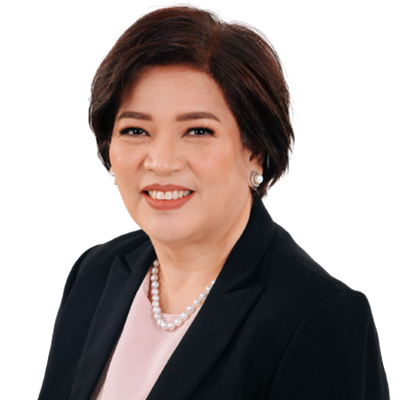-
Audit approach overview
Our audit approach will allow our client's accounting personnel to make the maximum contribution to the audit effort without compromising their ongoing responsibilities
-
Annual and short period audit
At P&A Grant Thornton, we provide annual and short period financial statement audit services that go beyond the normal expectations of our clients. We believe strongly that our best work comes from combining outstanding technical expertise, knowledge and ability with exceptional client-focused service.
-
Review engagement
A review involves limited investigation with a narrower scope than an audit, and is undertaken for the purpose of providing limited assurance that the management’s representations are in accordance with identified financial reporting standards. Our professionals recognize that in order to conduct a quality financial statement review, it is important to look beyond the accounting entries to the underlying activities and operations that give rise to them.
-
Other Related Services
We make it a point to keep our clients abreast of the developments and updates relating to the growing complexities in the accounting world. We offer seminars and trainings on audit- and tax-related matters, such as updates on Accounting Standards, new pronouncements and Bureau of Internal Revenue (BIR) issuances, as well as other developments that affect our clients’ businesses.
-
Tax advisory
With our knowledge of tax laws and audit procedures, we help safeguard the substantive and procedural rights of taxpayers and prevent unwarranted assessments.
-
Tax compliance
We aim to minimize the impact of taxation, enabling you to maximize your potential savings and to expand your business.
-
Corporate services
For clients that want to do business in the Philippines, we assist in determining the appropriate and tax-efficient operating business or investment vehicle and structure to address the objectives of the investor, as well as related incorporation issues.
-
Tax education and advocacy
Our advocacy work focuses on clarifying the interpretation of laws and regulations, suggesting measures to increasingly ease tax compliance, and protecting taxpayer’s rights.
-
Business risk services
Our business risk services cover a wide range of solutions that assist you in identifying, addressing and monitoring risks in your business. Such solutions include external quality assessments of your Internal Audit activities' conformance with standards as well as evaluating its readiness for such an external assessment.
-
Business consulting services
Our business consulting services are aimed at addressing concerns in your operations, processes and systems. Using our extensive knowledge of various industries, we can take a close look at your business processes as we create solutions that can help you mitigate risks to meet your objectives, promote efficiency, and beef up controls.
-
Transaction services
Transaction advisory includes all of our services specifically directed at assisting in investment, mergers and acquisitions, and financing transactions between and among businesses, lenders and governments. Such services include, among others, due diligence reviews, project feasibility studies, financial modelling, model audits and valuation.
-
Forensic advisory
Our forensic advisory services include assessing your vulnerability to fraud and identifying fraud risk factors, and recommending practical solutions to eliminate the gaps. We also provide investigative services to detect and quantify fraud and corruption and to trace assets and data that may have been lost in a fraud event.
-
Cyber advisory
Our focus is to help you identify and manage the cyber risks you might be facing within your organization. Our team can provide detailed, actionable insight that incorporates industry best practices and standards to strengthen your cybersecurity position and help you make informed decisions.
-
ProActive Hotline
Providing support in preventing and detecting fraud by creating a safe and secure whistleblowing system to promote integrity and honesty in the organisation.
-
Accounting services
At P&A Grant Thornton, we handle accounting services for several companies from a wide range of industries. Our approach is highly flexible. You may opt to outsource all your accounting functions, or pass on to us choice activities.
-
Staff augmentation services
We offer Staff Augmentation services where our staff, under the direction and supervision of the company’s officers, perform accounting and accounting-related work.
-
Payroll Processing
Payroll processing services are provided by P&A Grant Thornton Outsourcing Inc. More and more companies are beginning to realize the benefits of outsourcing their noncore activities, and the first to be outsourced is usually the payroll function. Payroll is easy to carve out from the rest of the business since it is usually independent of the other activities or functions within the Accounting Department.
-
Our values
Grant Thornton prides itself on being a values-driven organisation and we have more than 38,500 people in over 130 countries who are passionately committed to these values.
-
Global culture
Our people tell us that our global culture is one of the biggest attractions of a career with Grant Thornton.
-
Learning & development
At Grant Thornton we believe learning and development opportunities allow you to perform at your best every day. And when you are at your best, we are the best at serving our clients
-
Global talent mobility
One of the biggest attractions of a career with Grant Thornton is the opportunity to work on cross-border projects all over the world.
-
Diversity
Diversity helps us meet the demands of a changing world. We value the fact that our people come from all walks of life and that this diversity of experience and perspective makes our organisation stronger as a result.
-
In the community
Many Grant Thornton member firms provide a range of inspirational and generous services to the communities they serve.
-
Behind the Numbers: People of P&A Grant Thornton
Discover the inspiring stories of the individuals who make up our vibrant community. From seasoned veterans to fresh faces, the Purple Tribe is a diverse team united by a shared passion.
-
Fresh Graduates
Fresh Graduates
-
Students
Whether you are starting your career as a graduate or school leaver, P&A Grant Thornton can give you a flying start. We are ambitious. Take the fact that we’re the world’s fastest-growing global accountancy organisation. For our people, that means access to a global organisation and the chance to collaborate with more than 40,000 colleagues around the world. And potentially work in different countries and experience other cultures.
-
Experienced hires
P&A Grant Thornton offers something you can't find anywhere else. This is the opportunity to develop your ideas and thinking while having your efforts recognised from day one. We value the skills and knowledge you bring to Grant Thornton as an experienced professional and look forward to supporting you as you grow you career with our organisation.
As our society, in general, keeps moving forward at a blistering pace, so do our ideas and notions of what makes up a good and progressive society. With the advancement of technology, the increase in social awareness, and the popularity of social issues such as human rights and equality becoming more prevalent, our tendency as humans is to adapt to these changes. As such, businesses are inevitably influenced by these progressive ideologies of justice and inclusivity. And it is no secret that gender inequality is currently one of society’s most widespread social issues that I believe needs more attention. Not because I, myself, am a woman, but because diversity, equity, and inclusion are all characteristics that I hold dear, and these are exactly the type of qualities that I wish for more people to propagate as well, for both business-minded individuals and non-entrepreneurs alike.
Respect is a basic value at Grant Thornton, and we often discuss and prioritize issues of diversity, equity, and inclusion. Respect for human dignity is the conviction that each and every person must recognize and realize. It is the intrinsic value and worth of everyone we meet that we must uphold, because that is what pushes society forward. By respecting one another, we involuntarily contribute to society and the workplace. And obviously, respect will always lead to growth and equality.
Interestingly, an article by Forbes recognizes that diversity and inclusion are values that are both necessary for the success of modern businesses. Diversity and inclusion cultivate an expressive workplace environment wherein vast ideas, cultures, and lifestyles all lead to an improvement in a company’s culture. As the article expounds, having different types of people from different races, backgrounds, and genders gives the company a myriad of unique ideas. And because each person can contribute their own specific opinion or mindset, it allows the company to grow multilaterally out of respect for each other’s opinions and diversity. Thus, giving way to the recognition of social issues such as gender parity and how they need to be addressed more.
Motivated by this concept of respect and diversity, we have been pursuing the study of women’s rights annually, and just recently, Grant Thornton’s 2023 Women in Business Report (WIB) was completed. As the findings of the research will demonstrate, there is definitely a need for gender equality and inclusivity in the workplace. The research’s results also show that gender equality in the workplace heavily influences businesses, because it is a requirement for being attractive to both customers and employees.
While progress on the overall number of women in senior leadership continues, this year’s research shows that women in mid-market companies globally hold 32.4% of senior management positions, up only 0.5 percentage points from last year’s 31.9%. In the 19 years since we began monitoring this percentage, the proportion has only shifted by 13 percentage points. The curve has steepened in recent years, but there’s still much more to do. Without a greater level of intent from businesses, the percentage of senior management positions held by women will only reach 34% by 2025. Furthermore, an alarming rate of 9% of mid-market businesses globally still have no women in senior leadership roles, while 9.7% had only one woman in senior leadership roles.
On the brighter side, despite only having a slight increase in the percentage of women in senior leadership positions, this year’s research shows a significant broadening of the roles women in positions hold. Globally, there has been a huge increase in the percentage of women occupying the roles of Chief Executive Officer (CEO)/Managing Director (MD), and Chief Information Officer (CIO) positions. Back in 2019, just 15% of businesses globally had a female CEO/MD. Now, that number is around 28%. Female CIO positions, on the other hand, rose from 16% to 23% over the same period. Female Chief Operating Officers (COOs) and Chief Financial Officers (CFOs) have also been on the rise, with 25% of businesses globally now having a female COO and 38% having a female CFO, according to the data.
To give a better idea of how the data implicates our country and its culture, we can compare the global data to the Philippine data. According to the WIB, fortunately, there are indeed improvements in the COO and sales director positions, while the ratio for the CIO is flat. However, there is a decline in the percentage of women in CEO roles here in the Philippines, which means that there is still much more to be done in improving gender parity internationally.
On a more positive note, the data also reveals that there have been new female leaders appointed within the industries in the Philippines, which have traditionally been dominated by men. A few examples of these are Lorelei Osial, President and CEO of Pilipinas Shell; Martha Sazon, President and CEO of Gcash; Ambe Tierro, Country Manager of Accenture; and Abigail Tine Del Rosario, the First Filipina President and CEO of Maybank in the Philippines.
The 2023 WIB research also identifies a few factors that could explain this acceleration and improvement of women in senior management roles in Philippine industries.
One of which is through the external pressures around Environmental, Social and Governance (ESG). The establishment of global ESG standards and regulations is putting pressure on firms to form diverse leadership teams, emphasizing more women in senior leadership. Secondly, government policies to promote diversity have also helped equalize the playing field, as countries around the world have been mandating public companies to support diversity, such as in India and Australia.
Lastly, perhaps the most significant boost to achieving gender parity could come from a continued commitment from global businesses to provide flexible working setups. This year’s research shows that businesses that offer hybrid and flexible setups, or those that are allowed to work from home, easily outperform those that do not have this option of flexibility. When it comes to women in senior management, I firmly believe that the more flexible the workplace, the more we will be able to see women getting into more senior leadership roles. And to conclude, although the push for an inclusive and equal workplace has been gaining momentum, worldwide popularity, and instances of victory here and there, it is not without its challenges, and the first step to truly conquering this issue is by sowing respect, diversity, and equality.
As published in The Manila Times, dated 22 March 2023




